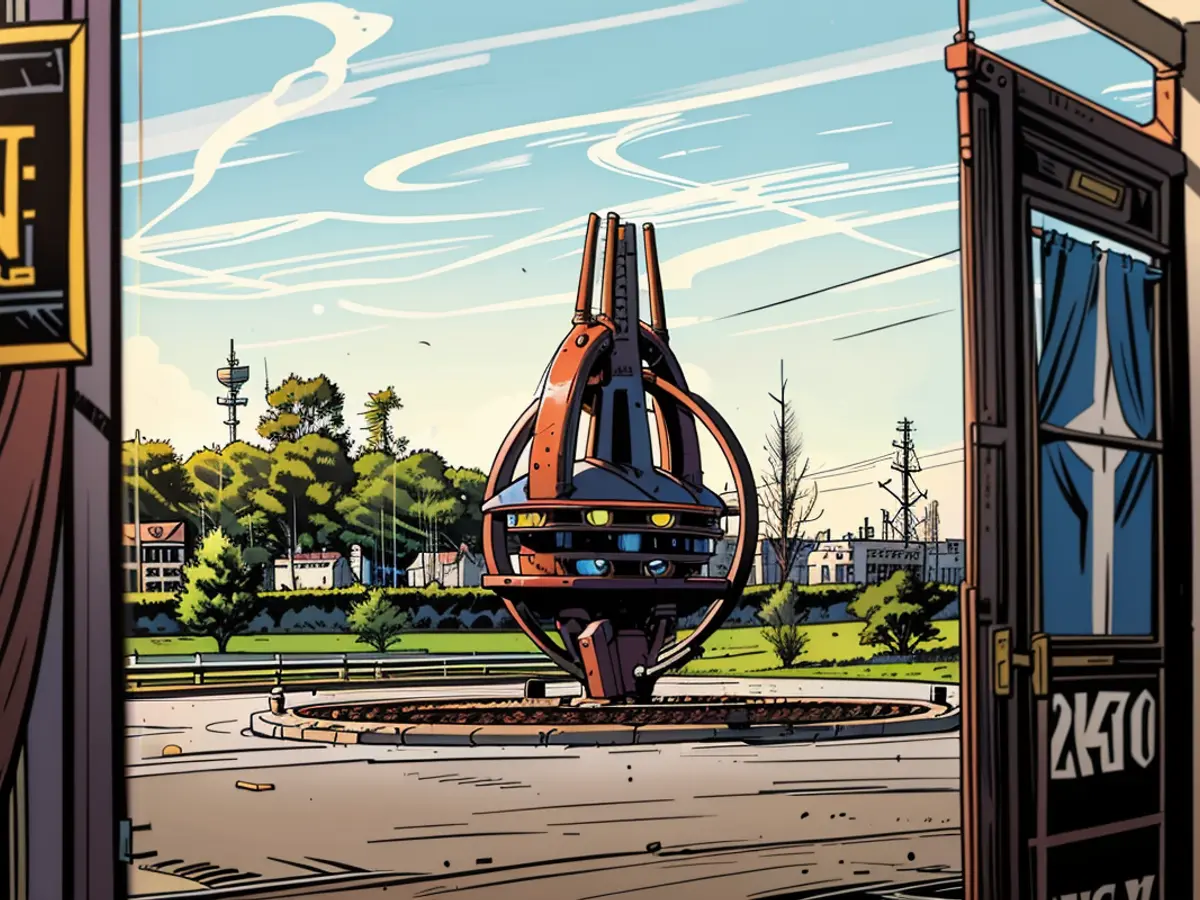Disputes or disagreements. - Germany wins name conflict within NATO.
In a recent disagreement concerning the naming of a new NATO initiative for Ukraine, the German government has come out victorious in its disagreement with other allies.
According to information obtained from diplomats by the German Press Agency, the project will no longer be called "NATO Mission Ukraine" (NMU) in the meantime, but rather "NATO Support and Training for Ukraine's Security" (NSTUS). This label aims to clarify that it focuses on security support and training activities for the country that has been attacked by Russia.
The majority of NATO nations initially supported the name "NATO Mission Ukraine." Nonetheless, the German government expressed concerns that this term could be interpreted as if the alliance intended to deploy troops to Ukraine. They worried that using this name could be exploited by Russia for anti-NATO propaganda.
Conversely, supporters of the mission designator contended that the Kremlin would label the NATO project as aggression and employ it for disinformation efforts.
However, it raises questions as to why Germany is the only country to go to such efforts - more so because it is said to support the content of the plans. The main intention appears to be coordinating arms supplies and training activities for the Ukrainian military.
Hopefully, the start of this new project to help Ukraine will be decided at the upcoming NATO summit by German Chancellor Olaf Scholz (SPD) and the other NATO leaders' heads of state. It is also considered a precaution in the case of the possible return of Donald Trump to the US presidency in January 2025.
In the past, Trump's statements have sparked concern over whether the US would maintain its support for Ukraine in the same way in the conflict against Russia under his leadership. Within the alliance, there are concerns that a change in the political direction in Washington could also have an impact on the coordination of weapons deliveries and training activities for the Ukrainian military.
So far, the US has taken on this role. In the last months of 2022, they formed a 300-member team known as Security Assistance Group-Ukraine (SAG-U) at the headquarters of the US military in Wiesbaden (Hesse). The NATO mission is expected to have a similar number of personnel.
Read also:
- Despite initial support from many NATO nations for the name "NATO Mission Ukraine," concerns were raised by Germany due to potential misinterpretations and propagandistic exploitation by Russia.
- The German government's goal in changing the name was to avoid the impression that NATO aimed to deploy troops to Ukraine, a concern that could escalate the existing conflict between Ukraine and Russia.
- During the NATO summit, German Chancellor Olaf Scholz will likely discuss the new project focused on security support and training for Ukraine's military.
- Russia's potential reaction to this NATO project continues to be a topic of concern within NATO, as the Kremlin could misuse any alliance activities in Ukraine for their disinformation efforts.
- In light of possible changes in political direction in Washington, the future support for Ukraine in conflict against Russia is a pressing issue for the alliance, especially considering Donald Trump's past statements on the matter.
- The US, for the moment, has taken the lead on supplying arms and training to the Ukrainian military, through the formation of the 300-member Security Assistance Group-Ukraine (SAG-U) in Wiesbaden.
- The upcoming NATO project is expected to have a similar staff size to SAG-U, reflecting the alliance's commitment to supporting Ukraine's security efforts.
- Within NATO, there's a growing recognition of the need for coordination of arms supply and military training activities for Ukraine, given the ongoing conflict and potential political shifts in Washington.
- Western leaders, including those from Germany and other NATO allies, have urged Ukraine to settle the name dispute with Russia, as continuing the conflict could further destabilize the region and worsen international relations.
- Brussels has been actively engaged in pursuing a peaceful resolution to the name dispute, working alongside diplomats from various nations to foster dialogue between Ukraine and Russia.
- In an attempt to de-escalate the situation and prevent further escalation of the conflict, NATO leaders are urging all parties involved to engage in diplomatic talks and find a mutually acceptable solution, emphasizing the importance of collective security and cooperation in resolving international disputes.








